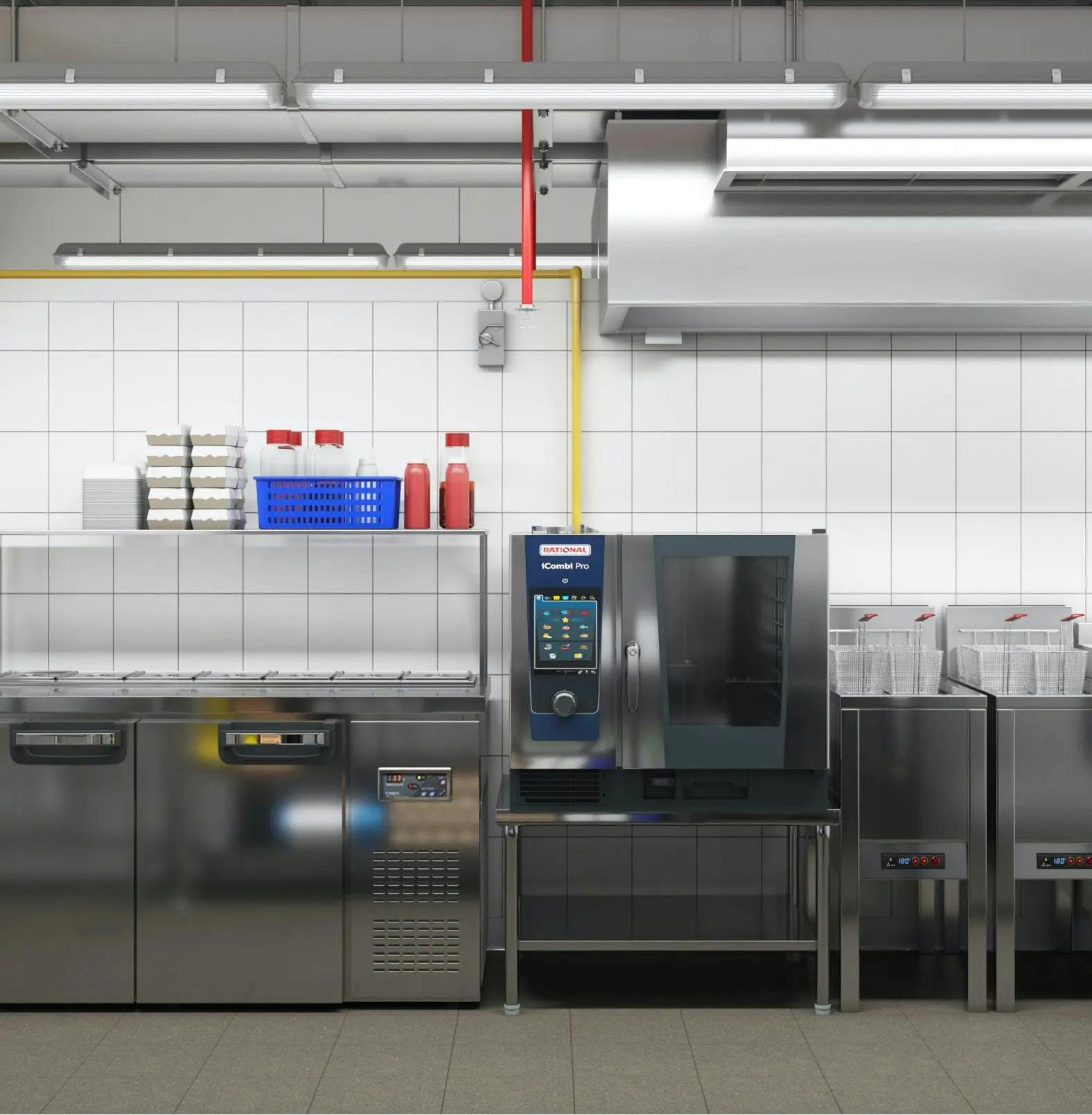Singapore has a thriving and diverse food and beverage (F&B) industry, with over 5,000 restaurants serving a variety of cuisines. However, running a restaurant business in Singapore is not without risks. You have to deal with multiple hazards that can hurt your business’s reputation, revenue, and legal liability.
To protect your restaurant business from potential threats, you need to have a risk management plan. A risk management plan is a document that shows the risks you face, measures their impact and likelihood, and describes the strategies to avoid or reduce them.
In this blog, we will give you tips on how to make a risk management plan for your restaurant business in Singapore. We will also show you how cloud kitchens can help you lower your risks and grow your business.
Discover and assess the risks
Creating a risk management plan for your restaurant business is a crucial first step. Let’s dive into the common risks you might face and how to navigate them in Singapore:
- Food Safety Risks: Covering issues like food poisoning and contamination can be a serious threat to your customers and staff. Staying compliant with the Food Safety Standards and Safe Food Practices & Guidelines in Singapore is a must.
- Employee Risks: From injuries to theft, these risks impact your staff’s health and productivity. Ensure compliance with the Employment Act and the Workplace Safety and Health Act in Singapore.
- Customer Risks: Complaints or disputes can tarnish your reputation. Complying with the Consumer Protection (Fair Trading) Act and the Personal Data Protection Act in Singapore is vital.
- Property Risks: Fire, floods, or vandalism can harm your premises and disrupt operations. Adhering to the Fire Safety Act and the Building Control Act in Singapore is essential.
- Compliance Risks: Breaches of laws or standards can affect your licensing or certification. Meeting requirements like the Licensing of Food Establishments and Halal Certification in Singapore is necessary.
To assess these risks, gauge their potential impact and likelihood. Use a risk matrix to prioritise and tackle the ones that need immediate attention.
Take action to control the risks
This step involves putting in place measures and policies to either prevent, minimise the impact or likelihood of potential risks. For restaurants in Singapore, practical actions include:
- Adhering to Food Safety Standards and Regulations: Implement a robust food safety management system, train your staff on food hygiene, and ensure regular inspections and cleaning to uphold top-notch food safety.
- Fostering a Safe Work Environment: Comply with the Employment Act and Workplace Safety and Health Act, offer proper training and supervision, and establish a code of conduct and grievance policy for employee protection.
- Delivering Quality Service: Respond to customer feedback promptly, resolve issues professionally, and establish clear refund and cancellation policies to ensure customer satisfaction.
- Safeguarding Your Property: Install fire and security systems, maintain your premises and equipment, store inventory correctly, and devise contingency plans for power outages or emergencies.
- Staying Compliant: Stay updated on relevant laws, regulations, and standards, renew necessary licenses and permits, and maintain accurate records to ensure compliance.
Check and update the risks
Onto the final lap of creating your risk management plan: checking and updating those risks. This step involves keeping a close eye on the effectiveness of your risk control actions, spotting any new risks that may pop up, and tweaking your plan accordingly. Here’s how you can do it:
- Regular Audits and Inspections: Make it a habit to conduct routine audits and inspections of your restaurant business.
- Data and Feedback Analysis: Dive into the data and feedback from your customers and staff to gather valuable insights.
- Financial and Operational Review: Take a look at your financial and operational performance reports for a comprehensive review.
- Stakeholder Consultation: Stay in the loop by consulting with your stakeholders, be your suppliers, contractors, or regulators.
- Professional Expert Advice: When in doubt, seek advice from the pros. Accountants, lawyers, or insurance brokers can offer valuable insights.
Grow your business with Cloud Kitchens
While a risk management plan can help you prevent or minimise the risks, it cannot eliminate them completely. Some risks are unpredictable or unavoidable, and they can still cause significant losses or damages to your restaurant business.
That’s why you need to grow your business with cloud kitchens, which are cheaper, faster, and smarter than traditional restaurants. These are commercial facilities where you can cook and deliver food without a storefront.
By using cloud kitchens, you can reduce your risks and enjoy the following benefits:
- Lower Costs: Save on rent, utilities, staff, and equipment as cloud kitchens are shared and optimised for delivery.
- Higher Efficiency: Focus on cooking and delivering food, as cloud kitchens handle the logistics and maintenance for you.
- Greater Flexibility: Experiment with new menus, brands, or concepts, as cloud kitchens allow you to launch or change them quickly and easily.
- Wider Reach: Access more customers and markets, as cloud kitchens are located in strategic and high-demand areas.
To find the best cloud kitchens for your restaurant business, you can compare the facilities, services, and prices of different providers and consult a cloud kitchen expert who can help you assess your needs, tailor your solutions, and support your growth.
Protect and grow your restaurant business with Cloud Kitchens
Securing your restaurant business in Singapore may have its challenges, but it’s also ripe with opportunities. Craft a robust risk management plan and pair it with the efficiency of cloud kitchens, and you’ve got the recipe for shielding your venture, fostering growth, and delighting your patrons.
Keen on mastering the risk management game or exploring the world of cloud kitchens? Reach out to us at Smart City Kitchens. We’re the crew trusted by chefs and restaurateurs shaping the food delivery landscape. Join us today, and together, let’s whip up success in Singapore’s food delivery scene.
